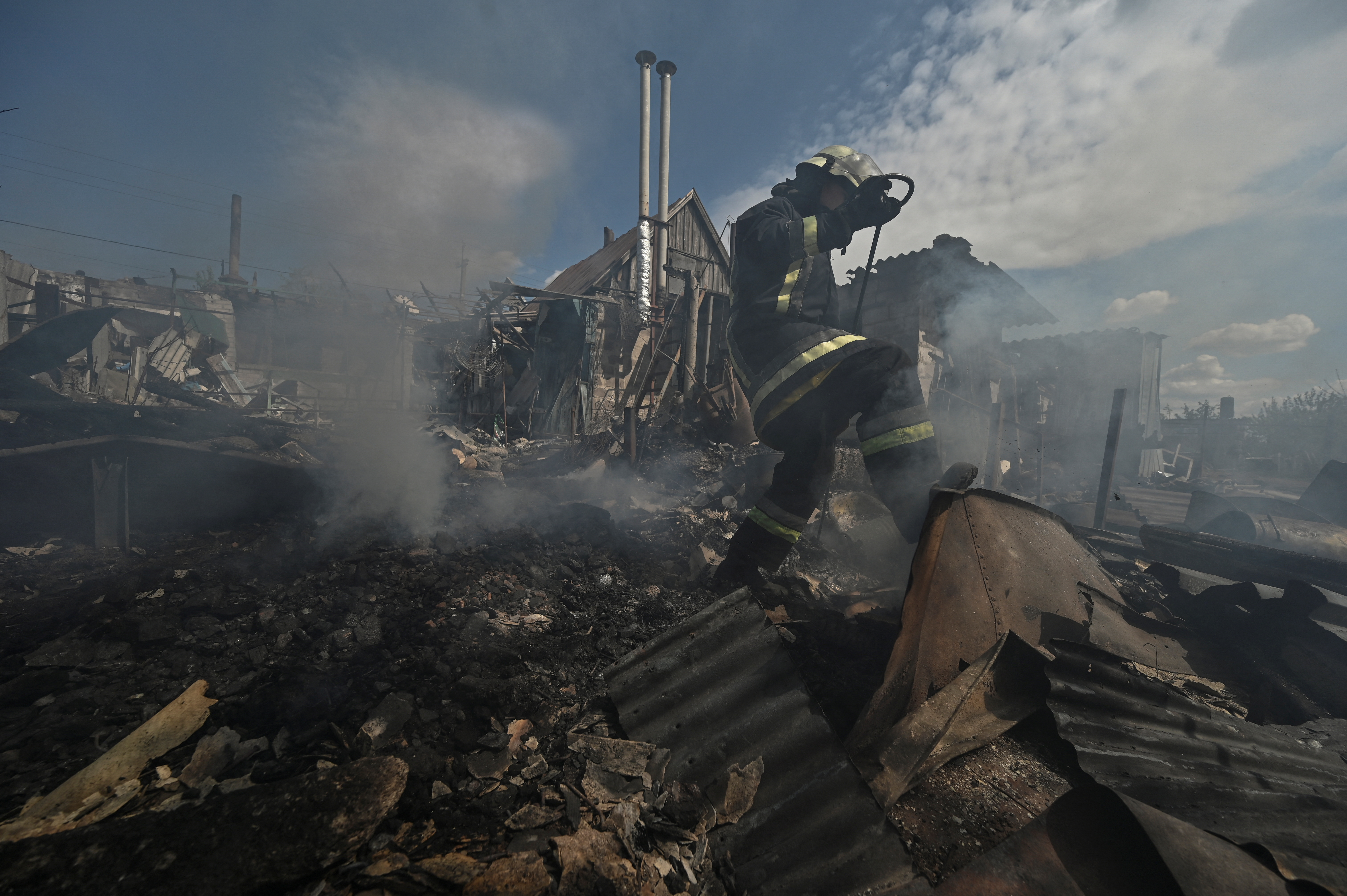
[1/3] A firefighter works on the site of a residential house destroyed by a Russian military strike, amid Russia’s attack on Ukraine, in the village of Malokaterinivka, Zaporizhia region, Ukraine, May 11.
May 11 (Reuters) – Ukraine’s long-awaited counteroffensive against Russia’s invasion force has not yet begun, President Volodymyr Zelensky said, as his commanders claimed their biggest battlefield victories in months.
While a full-scale counteroffensive involving tens of thousands of troops and hundreds of Western tanks is still being prepared, Kiev says it has pushed back Russian forces for the past several days near the eastern city of Baghmut in local attacks.
“We need a little more time,” Zelensky said in an interview with European broadcasters.
Ukrainian forces had already received enough equipment for their campaign from Western allies, but were waiting for a full complement of armored vehicles to reduce their casualties, Zelenskiy said.
In a major step in Western military support for Ukraine, Britain announced the deployment of Storm Shadow cruise missiles, which would give it the ability to strike targets behind Russian borders.
“The key here is to give Ukraine that ability to defend itself,” Defense Secretary Ben Wallace told parliament in London.
Western countries, including the United States, have previously backed away from supplying long-range weapons for fear of provoking a Russian retaliation. Wallace said Britain had weighed the risk.
The war in Ukraine is at a turning point, with Kiev poised to unleash its new counteroffensive after six months on the defensive, while Russia launches a major winter offensive that fails to capture significant territory.
Moscow’s main target for months was Pakmut, which had yet to be fully captured in the bloodiest ground war in Europe since World War II.
The head of Russia’s Wagner private army, which led the fight at Bagmut, acknowledged Ukrainian successes against regular Russian forces on the city’s edges for days, while complaining that his men lacked support.
The Ukrainian operations were “unfortunately, partially successful,” Wagner chief Yevgeny Prigozhin said on social media on Thursday, calling Zelensky’s claim that the counteroffensive was still “deceptive.”
Prigozhin said on Tuesday that Russian forces had fled the trenches, giving up a patch of ground southwest of Pakmut. A Ukrainian division claimed to have routed the platoon and destroyed two of its companies.
The commander of Ukraine’s ground forces said on Wednesday that Russian forces had retreated by as much as two kilometers in several places. Ukraine boasts some similar developments since its last major attack last November.
Russia’s military did not accept the setback. At its regular daily briefing on Thursday, the Defense Ministry said Russian troops were continuing to attack the western part of Baghmut, with paratroopers pinning Ukrainian army units in the flanks.
Kremlin spokesman Dmitry Peskov admitted the battle was “very difficult”. He said he had no doubt that Bagmuth would be “caught and brought under control.”
Reuters could not independently verify the situation on the ground in Bagmut.
Managing expectations
Western allies are sending hundreds of tanks and armored vehicles to Ukraine for its counteroffensive and have trained thousands of Ukrainian troops abroad.
Anticipating a Ukrainian counteroffensive, Russia has resumed airstrikes in Ukraine over the past two weeks after nearly two months. Moscow says it has used drones to attack areas occupied by Ukraine and Russian areas near the border.
In a recent statement, the governor of Russia’s Bryansk region, which borders Ukraine, said the drone crashed into a fuel storage depot. No one was injured. Kiev does not comment on such incidents.
Some Ukrainian officials tried to temper expectations of their counteroffensive, warning of a quick repeat of Ukraine’s major military victories last year, which pushed Russian forces back from the suburbs of Kyiv and recaptured occupied territory in unexpected developments.
Russia is determined to defend Ukraine’s sixth territory, which it occupies and claims to have permanently annexed. In the six months since the last major Ukrainian advance it has built extensive fortifications along the front. Penetrating through an armored assault would be more complicated than anything Ukraine’s forces have ever attempted.
Reporting by Tom Balmforth, Olena Harmash, Pavel Polityuk, David Ljunggren and Ron Popeski; Editing by Peter Graf, Alex Richardson, David Gregorio and Diane Croft
Our Standards: Thomson Reuters Trust Principles.